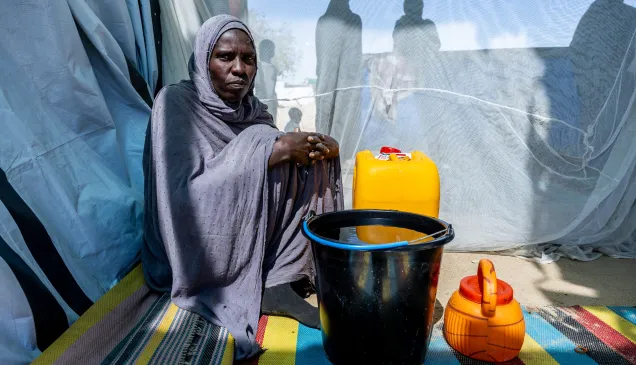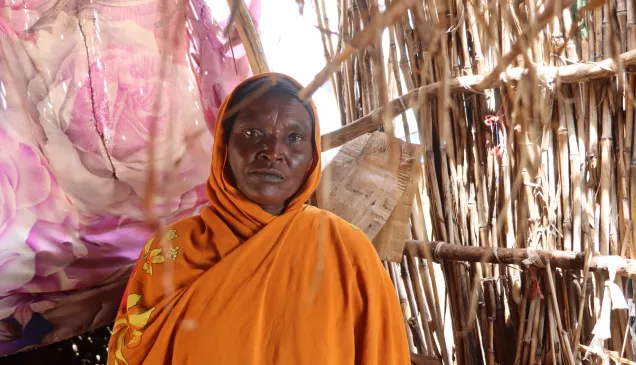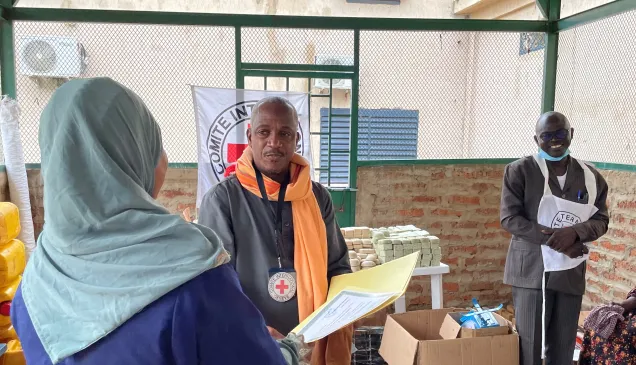Chad: Psychosocial support heals the invisible wounds carried by Sudanese refugees

The civil war in Sudan has forced hundreds of thousands of men, women and children to flee their homes. They arrive in the eastern provinces of Chad, where precarious conditions await them, and they come carrying invisible wounds, which are a lot heavier than any of the material possessions they may have lost.
Sudanese refugees have experienced so much suffering, including witnessing the violence of the conflict, being brutally uprooted from their homes, losing their loved ones and living with the uncertainty of what tomorrow will bring. This has left them with deep scars. Trouble sleeping, nightmares, anxiety and depression – their psychological pain is ever-present. Every day, the International Committee of the Red Cross (ICRC) and the Red Cross of Chad listen, provide support and offer comfort to these refugees in an attempt to heal their invisible wounds.
When words ease the pain
“When we crossed the border, I was completely lost,” says Fatma*, who arrived in Tiné in Wadi Fira at the start of May with her ten-year-old son.
“The violence that we endured left me in constant fear,” she says. “I was barely sleeping anymore and neither was my son. Every time he closed his eyes, he would relive the traumatizing events. On top of that fear, I didn’t know where my mum or my sisters were, and the uncertainty of that ate away at me.”
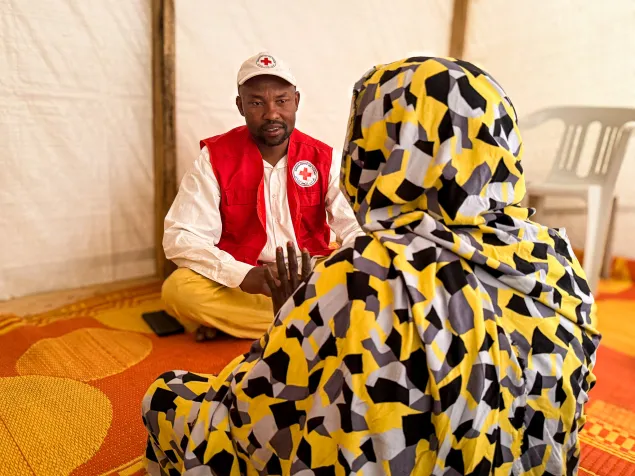
“Ever since we arrived, volunteers from the Red Cross have come to talk to us,” says Fatma. They hold group sessions, and these have made me realize that I’m not alone. Other women have been through similar situations. I feel supported and understood during these sessions. Opening up has made me feel better.”
A lost son and two children to protect
“I went to the Red Cross because I forget a lot,” reveals Khadidja*, a 64-year-old woman who sought refuge at the Djabal transit centre in Sila. “When I put something inside, I can’t find it again. When someone calls me, I can’t hear them. I am confused and lost.”
When the conflict broke out in Sudan, Khadidja left everything behind. She lost her only son, who used to help her with her daily chores. “I think about him so much,” she whispers, her voice trembling. She left Darfur and reached Chad with her 12-year-old niece and seven-year-old nephew.
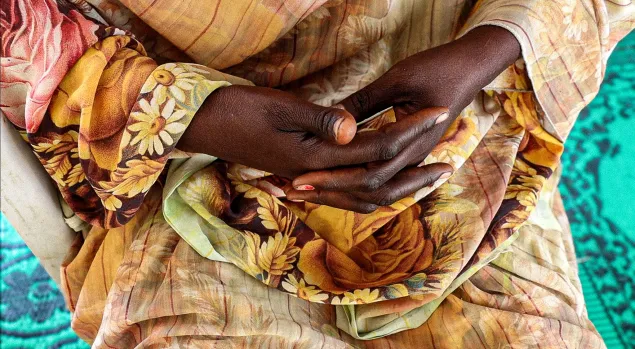
Khadidja is not alone in her suffering. Her niece is also living with the scars of loss.
“She cries a lot when she thinks of her father, who died. She was very close to him. She has nightmares and wakes up in the middle of the night,” says Khadidja.
During these difficult times, Khadidja and the children get valuable support at the counselling centre at the Djabal refugee camp, which was put in place by the ICRC and the Red Cross of Chad to provide psychosocial support. “We often go to the ICRC counselling centre for support,” she adds. “The sessions and discussions that we have there are gradually making us feel better. These sessions are so important for me because I’m raising these two children on my own. I’m their mother, father and grandmother all in one.”
Psychosocial support at the centre of the recovery process
Since 2024, the ICRC has been working with the Red Cross of Chad to put in place a psychosocial support programme in transit centres in the provinces of Ouaddaï, Sila and Wadi Fira. The programme aims to support people who have been left traumatized by the violence they have experienced in the past, difficult displacements and the loss of loved ones.
The programme offers individual and group psychological support sessions, training sessions and awareness-raising activities for the community, relaxation techniques and activities specifically designed for children. These sessions are led by psychologists, community representatives and Red Cross volunteers, and they give these refugees an opportunity to express the pain they are feeling and to share their experiences, as well as helping them to feel less isolated in their suffering. They provide a place where people can relax, talk and gradually regain some stability.
In a corner of the counselling centre at the Djabal refugee camp, bursts of laughter break the silence. Around ten children are drawing, playing and running around. These recreational activities organized by the ICRC are not mere distractions – they are an essential form of therapy.
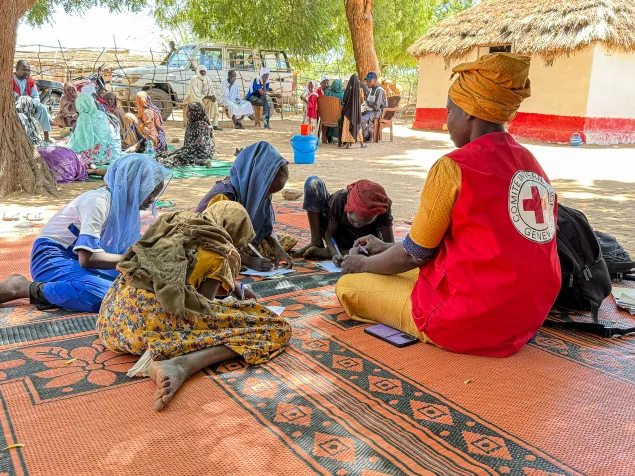
“Children express their trauma differently,” explains Stéphanie Loiseau, a mental health and psychosocial support delegate at the ICRC. “They may experience trouble sleeping, nightmares, anxiety or fears that do not go away. Through playing, drawing and singing, we give them a way of expressing things that they are unable to verbalize.” These activities therefore help to ease the trauma of experiencing conflict and being separated from loved ones.
“We cannot erase their pain or take back what they have experienced, but we can help each individual to regain some stability and hope so that they can look forward to a better future,” says Loiseau.
The programme in figures
Since the mental health and psychosocial support programme was launched in May 2024, its activities – which are tailored to local needs – have helped to raise awareness and provided support to a significant number of people across the three provinces:
- 47,390 people have been made aware of the psychological consequences of conflict.
- 1,286 people have received individual psychological support, and 56 of those people have been referred to other facilities for additional support.
- 22 members of host families have also received support.
- 72 children with special needs have received support that is specifically tailored to them.
- 12 volunteers from the Red Cross of Chad and nine community representatives have run discussion groups and supported people according to their specific needs.

